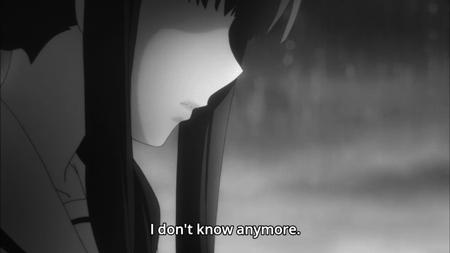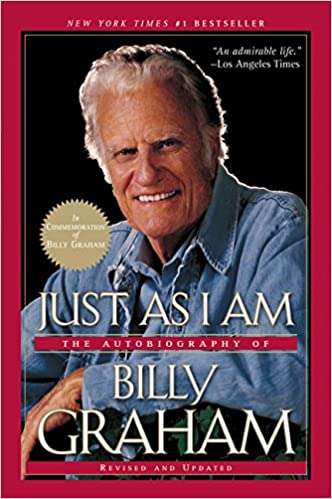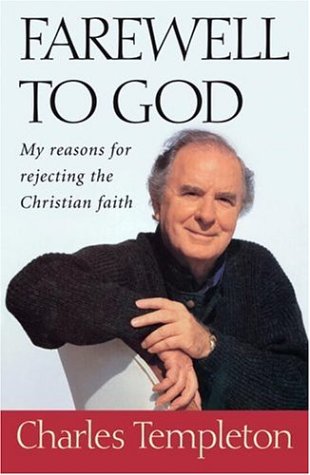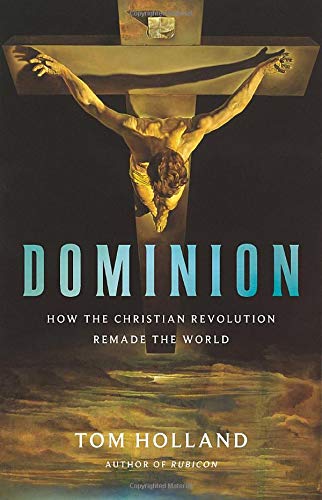Ten years ago, I read “Just as I Am,” The autobiography of Billy Graham. Finally, a famous, rich, and powerful Christian manages to avoid all the standard pitfalls of fame, riches, and power. It’s the refreshing story of a simple country boy who finds hope in Jesus and feels compelled to tell others about it. Billy’s simple style, humble life, and powerful delivery made him the most influential Christian evangelist in history (in terms of the number of people that heard him speak)
Early on, Billy becomes acquainted with an up-and-coming Canadian evangelist named Charles Templeton. They partner on many campaigns and become close friends. Both Charles and Billy wrestle with doubts. Can this simple story of divine love be true? One night Billy decides that his doubts will not be what drives him. Instead, he will trust in God’s love come what may. Charles simply cannot take that same step of faith. There are too many questions, too many doubts. He begs Billy to stop preaching and join him at Princeton for some serious study. Billy politely declines the offer. Charles throws himself into his studies. Gradually, Charles becomes convinced that Christianity and all religions are no more than well-meaning fibs. His final word on the matter is his autobiography: Farewell to God.
Since I took the time to hear Billy’s side of the story, I thought I’d give Charles some time to tell his.
Come On Charles, Try a Little Harder: The book isn’t a masterpiece. It’s an amateur version of Dawkins or Hitchens without all the spice and sarcasm. There is so much to say in the conversation about God’s existence, and it seems to me that Charles didn’t try too terribly hard in his wrestling match with the big questions. It’s standard fare and poorly written, which is a bit of a bummer. Charles has the same kind of “simplicity” that he criticizes Billy for having, which is quite ironic. For example, he lumps all Christians into the category of young earth seven-day literal creationists, then says “Surprise! Evolution,” cutting Christianity down in one stroke. He doesn’t even consider that millions of Christians believe the Genesis’ creation narratives are poetry or that an entire robust wing of Christianity exists that embraces theistic Evolution. He ignores some of the profound challenges facing the theory of Evolution itself (Read my review of Darwins Doubt). If Templeton was in debate class, he just failed. Another bone that I have to pick is his constant droning on about how he is “unbiased,” “rational.” and “open-minded,” or how his perspective is built entirely on “facts” rather than faith. This is such a tiresome line. Everyone is faith-based. We all have reasons for our beliefs. No one is unbiased. Can we please stop this now?
The Points the Really Sting:
- Suffering: Charles tells a depressing tale of a street girl in Calcutta born to a teenage prostitute. Devoid of love, forced to beg for a cruel handler from age two to ten, then transitioned into prostitution, finally dying of syphilis, malnutrition, and God knows what else at the age of fourteen. Somehow after hearing her story, talk of God’s love for humanity rings a bit more hollow. Singing “Jesus loves the little children of the world” doesn’t seem very true anymore. No one loved that girl, and there are millions more just like her. Then throw in the possibility of hell on top of all this misery, just because this girl didn’t hear the good news regarding a Jewish carpenter’s son from 2000 years ago. Well, it just becomes too much for anyone to believe. I know all the responses and counterarguments, but this one stings.
- Stinky Christians – Jesus’s message is good, with all its love, forgiveness, grace, and equality. And I get that we all fail to live up to the ideal, but at least there is an ideal, right? Kind of. Unfortunately, when it comes right down to it, Christianity doesn’t make much of a difference in a person’s behaviour and even makes things worse in some cases. I know, I know; it’s not Christianity that makes things worse it’s those who twist it to their own rotten ends. Like Charles’ mentor, who used his charismatic personality to get laid after crusades and load up cash that didn’t belong to him. Well, he wasn’t a very good Christian, you might say, or maybe he was a phony Christian, sure that’s fine. But when entire countries who embrace the teachings of Jesus as their shaping influence, commit genocide, fight tooth and nail to keep slavery, or justify wars of expansion. One begins to doubt. Put terrible circumstances, a temptation, a nasty enemy, or the corrupting influences of power into a Christian’s life, and it seems that nine times out of ten, he will behave as badly as anyone else. That stings.
- A System Built on Suffering and Death To make it in life, someone or something has to suffer or die. We naturally recoil at such a thought, but its truth seems unimpeachable. We see it in the virus and variants that dominate the news, wildlife documentaries on the BBC, and history book after history book that I read. The God is love mantra gets chewed up and spit out. It’s a nice thought, but it gets crushed by the brutality of life. For life to happen, there must be death, and it matters not whether there is a God in heaven or a Christian next door.
Que the depression!

In a dark and uncertain world find the better story. Frankly, these stinging observations above I don’t like at all. Who does? I don’t want them to be true. I want another story on which to cling. One that sneaks up on me out of the bleakness of life.
Interestingly, so does Charles. He talks of how the Christian story is the better one. “It’s more comfortable,” he says. He admits that Christianity contains “the most profound ethical concepts in history” and that “he continues to live by most of them.” But he must tear it all down because the idea of God is “demonstrably untrue,” and to follow the God story would then be “living a lie,” and who wants to do that?
I don’t quite have as much certainty as Charles. I do see life as a “carnival of blood,” as he calls it. I’m a historian; how can I not? But I can also glimpse light in the darkness. I feel something more profound than his simple materialistic conclusions. Charles does too. He speaks of a mysterious “life force” It’s impersonal to him, but he is reaching for more than meaningless existence. I get it. We all do. I just go a tiny step further and personalize the life force. I call it God. Charles is ticked off at the Bible, but he is also confused; on the one hand, he calls it unhelpful, dangerous, bilge, and then on the other, he says he lives by its principles. I share that frustration. I’m just a little more content to sit in tension, to be on a never-ending search. I’m convinced that redemptive love is the better story, so I tilt in that direction. Truth coming from ancient history always requires plenty of faith. We should all know this by now. For a litany of reasons and bucket fulls of faith, Charles chooses a story without a loving God, and I, with the same amount of reasoning and faith, choose one that does. –Which choice is better?
Both Billy and Charles are hard-wired evangelists. They can’t help themselves when they draw hard conclusions about life and then attempt to drive those points home with confidence and certainty. Doubt, mystery, or any uncertainty just doesn’t sit well in the stomachs of people like this. They have their place in society, but mystics and doubters like me belong too!






